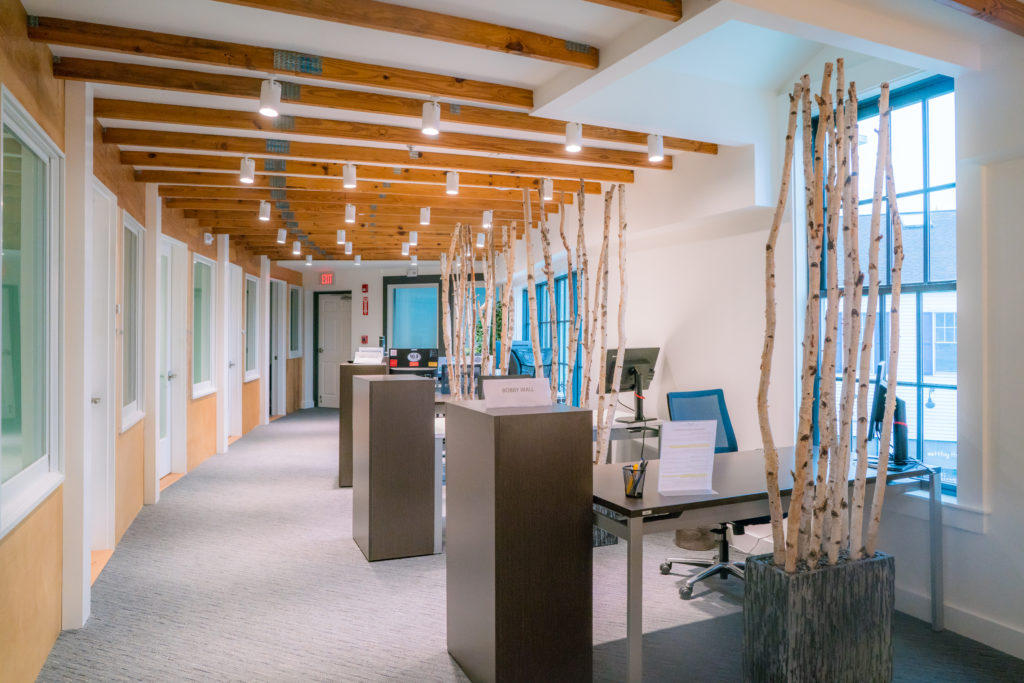We all striving to leave smaller footprint nowadays. Traditional offices, with their individual desks, sprawling footprints, and constant energy demands, raise concerns about their environmental impact. Cape Cod is a very unique place where everyone trying to do their part to preserve our beautiful world. Many people trying to do their part, but businesses and corporations are the ones who can make bigger impact. So by making certain choices we can influence businesses and make a more significant shift.
Let’s delve into the key sustainability benefits of shared workspaces:
1. Reduced Commuting, Lower Emissions: Traditional offices often require long commutes, contributing significantly to greenhouse gas emissions and traffic congestion. What we mean by that when you have a workplace you have no choice by to show up there. With shared coworking you can choose your location closer to home. Also, coworking spaces, strategically located in urban centers with excellent public transport access, encourage walking, cycling, or using public transport, drastically reducing individual carbon footprints. Studies suggest a 20-50% reduction in commuting emissions for coworking users compared to traditional office layouts.
2. Resource Sharing, Resource Sparing: Traditional offices come equipped with individual amenities like printers, coffee machines, and meeting rooms, often underutilized. Sharing is caring in this case too. Coworking spaces promote sharing these resources, minimizing overall consumption and waste. Imagine one high-efficiency printer serving dozens instead of individually owned, rarely used ones! This translates to less energy used, fewer resources extracted, and less electronic waste generated.
3. Energy Efficiency in Design: Many coworking spaces prioritize sustainability, incorporating energy-efficient lighting, heating and cooling systems, and even renewable energy sources like solar panels. Smart building technologies optimize energy usage further, while open floor plans maximize natural light, reducing reliance on artificial illumination.
4. Reduced Paper Consumption: The digital revolution has reached coworking spaces, promoting paperless workflows through cloud-based document sharing and collaboration tools. This significantly reduces paper usage, saving trees, minimizing landfill waste, and decreasing the energy-intensive paper production process.
5. Community, Collaboration, and Green Initiatives: Coworking spaces foster a collaborative environment where sustainability-minded individuals can exchange ideas and implement eco-friendly initiatives. From composting programs to water-saving fixtures, the collective power of a shared space can drive significant environmental impact. Cape Space, for example, has electronics recycling. You can just bring your electronics and it will be collected every week.
The Future of Work, Greener and Shared: Coworking spaces offer a compelling alternative to traditional offices, not just for their flexibility and community spirit, but also for their significant potential to reduce our environmental footprint.
Do you currently use a coworking space? Share your experiences and thoughts on its environmental impact in the comments below!

